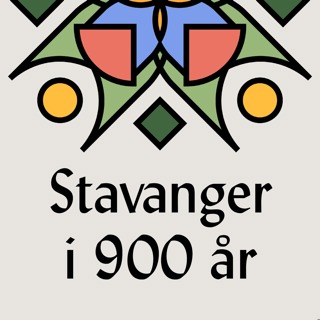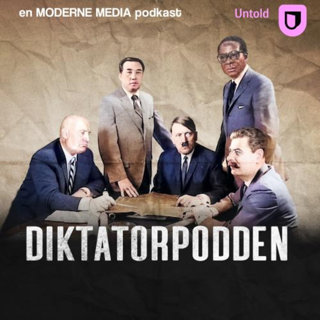
'Killing for the Roman Republic'
In 281/280 BC, the Hellenistic King Pyrrhus ventured to southern Italy to aid the Italiote-Greek city of Tarentum against a rising power based in central Italy. This enemy was the Romans. Over the next 150 years this civilisation would rise to become the Mediterranean superpower, winning wars against the Carthaginians, the Antigonids, Seleucids, Ptolemies and various other enemies. But why were the Roman soldiers so effective? I was delighted to be joined by Dr Steele Brand who brilliantly answered this question. Steele explained how the Roman Republican military was far from invincible. Indeed what is so striking from this period is how many devastating defeats the Romans suffered in the process - from Heraclea to Cannae. What made the Romans so extraordinary, however, was their mindset: the Roman civic ethos that was ingrained in its citizens from childhood. Steele explained how the household farm served as an ‘incubator’ for habituating citizens to Roman virtue, which in turn ensured that citizens remained willing to serve even in the wake of catastrophic military defeats. In short, it was these part-time ‘soldier farmers’ that became the nucleus of antiquity’s most famous empire.Steele is the author of 'Killing for the Republic: The Roman Way of War'. Hosted on Acast. See acast.com/privacy for more information.
13 Aug 202059min

Combat Trauma
From the 2000 historical blockbuster 'Gladiator' to the Total War series, brutal hand to hand warfare is something we commonly associate with antiquity. But do we have any ancient cases of psychological injury as a direct result of military service? Joining me to discuss this topic, focusing on cases from the Classical Greek Period (c.500 – 323 BC), is Dr Owen Rees. Owen is a historian of ancient warfare and society. He has also written papers about the possibility of an equivalent phenomenon to PTSD in ancient Greek warfare and how that trauma manifested itself differently in ancient Greek culture. In this podcast, we focus on the cases of two specific individuals from the Classical Period: Epizelus the Athenian and Clearchus the Spartan. Hosted on Acast. See acast.com/privacy for more information.
9 Aug 202048min

Stone Circles
From Cornwall to Orkney, stone circles are scattered throughout the length and breadth of the British Isles. Their history stretches more than 2 millennia, varying from the earlier huge stone circles such as Castlerigg, Avebury and the Ring of Brodgar to the smaller and more regional circles that emerged after c.2,000 BC. Their remains continue to attract great amounts of visitors right up to the present day.To learn more about these extraordinary prehistoric structures, I'm chatting with Timothy Darvill OBE, a professor from the Department of Archaeology and Anthropology at Bournemouth University and the author of Prehistoric Britain. Hosted on Acast. See acast.com/privacy for more information.
2 Aug 202033min

Agrippina the Younger
Agrippina the Younger (AD 15 - 59) was one of the most prominent women in the Julio-Claudian dynasty. Born during a time of radical political change in the Roman Empire, she had a very powerful pedigree. Great granddaughter of Augustus. Niece of Tiberius. Daughter of Germanicus. Sister of Caligula. She was also a wife of the Emperor Claudius and the mother of the infamous Nero. Today she is remembered as one of the most notorious women of ancient Roman history, thanks largely to her negative portrayal in the works of Cassius Dio, Suetonius and Tacitus. But how much of what they say is true? Joining me to help sort the fact from the fiction is Carey Fleiner, Senior lecturer in Classical Roman History at the University of Winchester. A brilliant communicator, Carey convincingly explains how the material record reveals a very different Agrippina to the infamous power-hungry murderess depicted by Roman writers. This was a fantastic chat and it was great to have her on the show to chat all things Agrippina. A couple of clarifications from parts of the interview:Agrippina was 22 when she gave birth to Nero.Suetonius included the remark 'I have swords as well as islands'Gaius Sallustius Crispus Passienus was the name of Agrippina's second husband. He had been prominent during the reign of Tiberius (not Julius Caesar) Hosted on Acast. See acast.com/privacy for more information.
26 Jul 202056min

Horse Archery
The horse archer was one of the most feared warriors of antiquity. Triumphing mobility and fluidity, these swift skirmishers came to epitomise a feared ‘eastern’ style of warfare. Renowned historical weapons expert and avid horse archer Mike Loades joins me to chat through horse archery's ancient history. Where did it originate? How did this method of warfare come to be? What sort of equipment did they use? Mike explains all. We first focus on this warfare method’s importance among ancient Near Eastern cultures before taking an in-depth look at antiquity’s superlative horse archers: the Scythians!Mike is the author of ‘War Bows’, an in-depth history of four iconic weapons that changed the nature of warfare. Hosted on Acast. See acast.com/privacy for more information.
19 Jul 202058min

Antonine Wall
In c.142 AD the Emperor Antoninus Pius ordered the construction of a new wall in Northern Britain. Situated between the Firth of Forth and the Firth of Clyde it stretched the neck of modern day central Scotland and was called the Antonine Wall. Although its ‘lifespan’ was relatively short-lived, this wall beyond ‘The Wall’ boasts a remarkable history. Archaeological discoveries continue to reveal more about this monumental structure and its accompanying features. From the terrible ‘lillia’ spike pits the Romans placed in front of the rampart to the Wall’s strong stone foundations.I was delighted to be joined by Andrew Tibbs to learn more about the Antonine Wall and why we must NOT call it the northernmost physical barrier of the Roman Empire. Andrew is the author of 'Beyond the Empire: A Guide to the Roman Remains in Scotland'. Hosted on Acast. See acast.com/privacy for more information.
12 Jul 202047min

Housesteads and Hadrian's Wall
Housesteads Roman Fort is one of the great, surviving treasures of Roman Britain. Once an auxiliary fort, it occupied a dominant position on Hadrian’s Wall. The Fort has proven vital in helping archaeologists and historians achieve a greater understanding about life on Hadrian’s Wall. From the worship of peculiar deities to everyday sanitation.To chat through Housesteads’ extraordinary archaeology and what it can tell us about life along this frontier, I’m joined by Professor Jim Crow from the University of Edinburgh. Jim has conducted excavations at several locations along Hadrian’s Wall, including Housesteads. He also lectured me a few years back, so it was great to catch up. Hosted on Acast. See acast.com/privacy for more information.
5 Jul 202046min

Origins of Biological & Chemical Warfare
The origins of biological and chemical warfare stretch far back; modern technology has not brought about these terrifying weapons. Throughout antiquity we have cases of societies using poisonous gases, incendiary materials and living organisms against their enemies. From snake and scorpion bombs to the use of ancient naphtha grenades. But how did the ancients view these infamous weapons? Did they try to refrain from using them? And if they did use them, why?I was thrilled to be joined by Adrienne Mayor to chat through this extraordinary topic. Adrienne is a folklorist and historian of ancient science at Stanford University. She is the author of numerous books including Greek Fire, Poison Arrows and Scorpion Bombs: Biological and Chemical Warfare in the Ancient World. Hosted on Acast. See acast.com/privacy for more information.
2 Jul 202030min




















